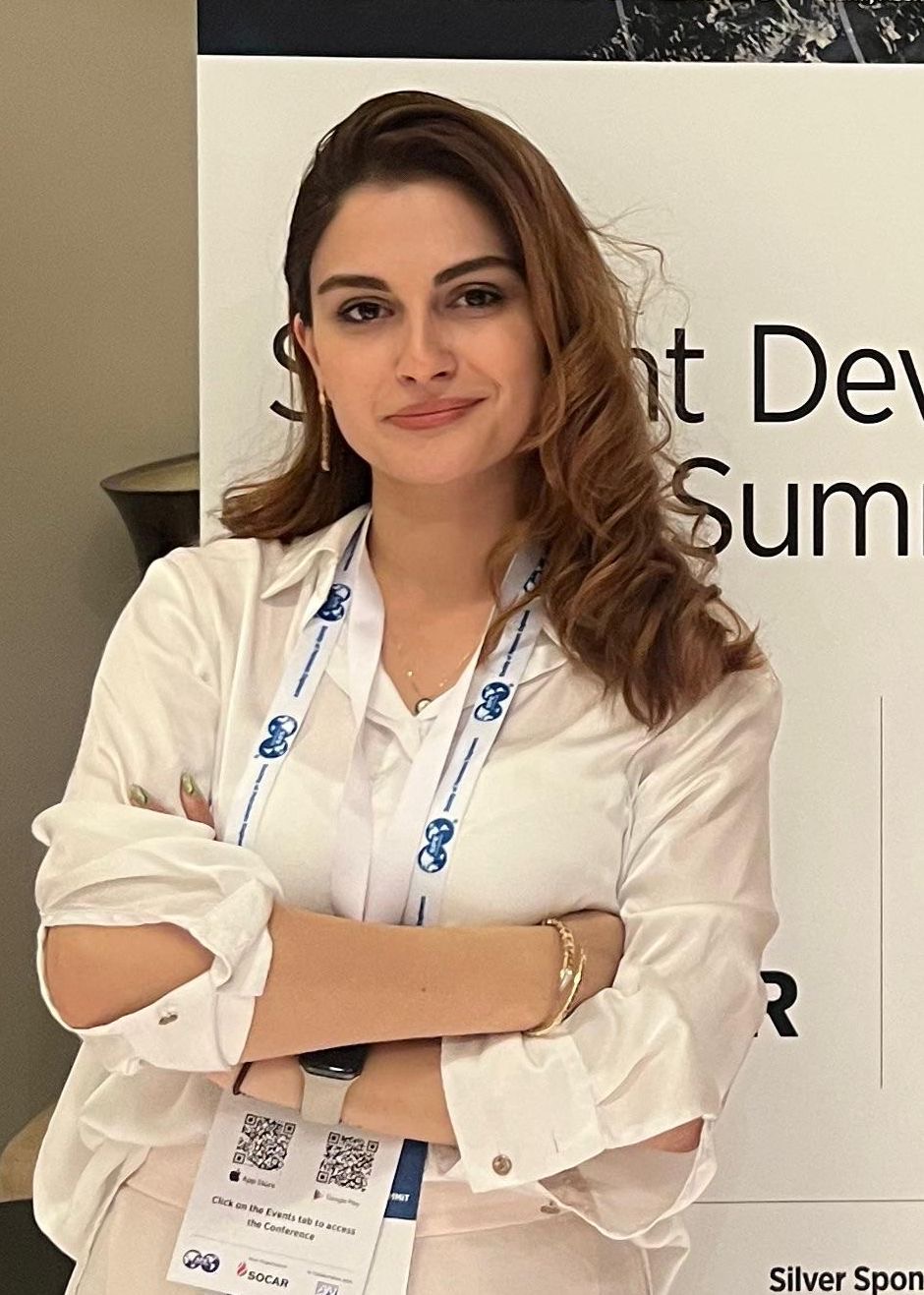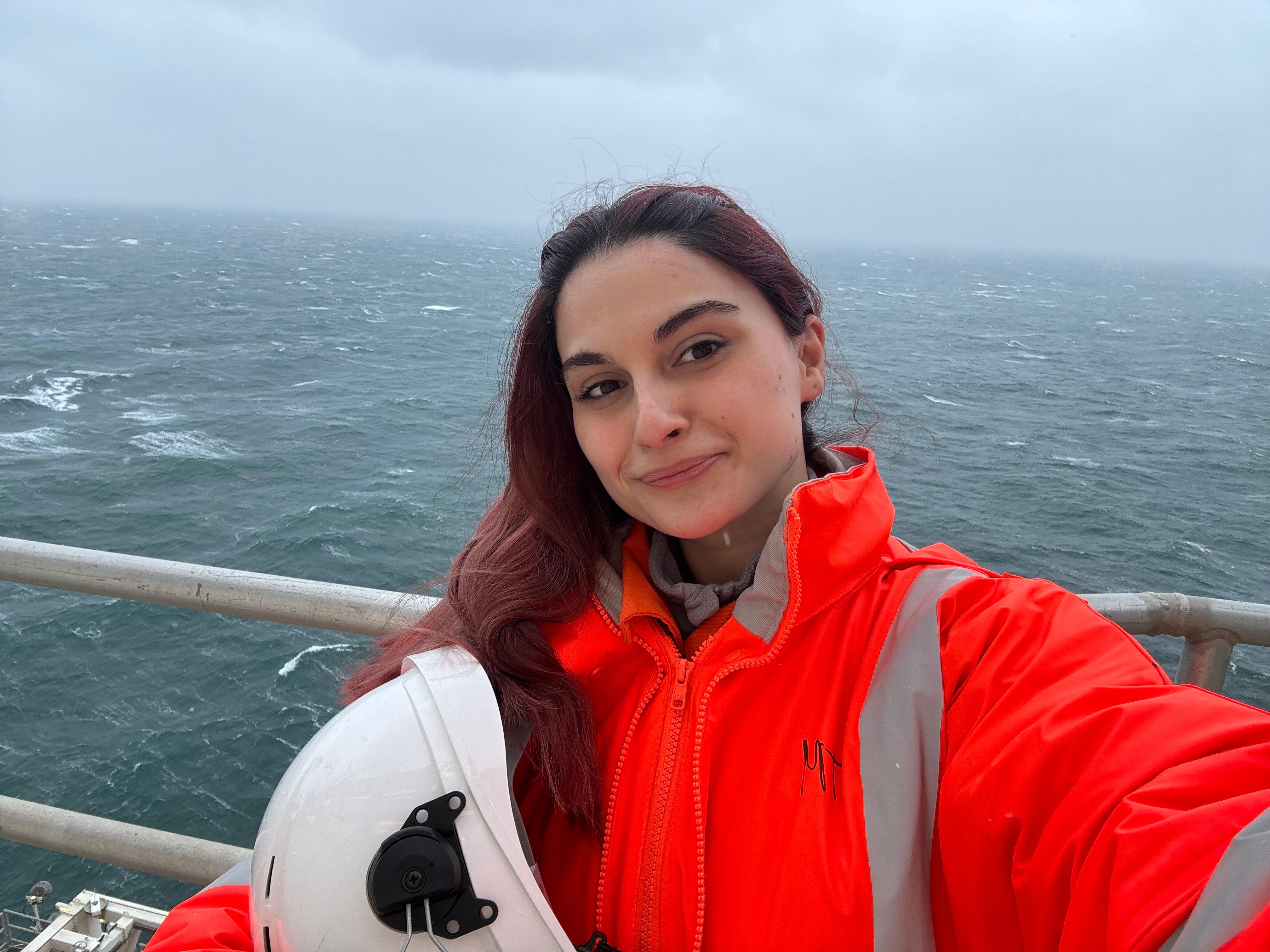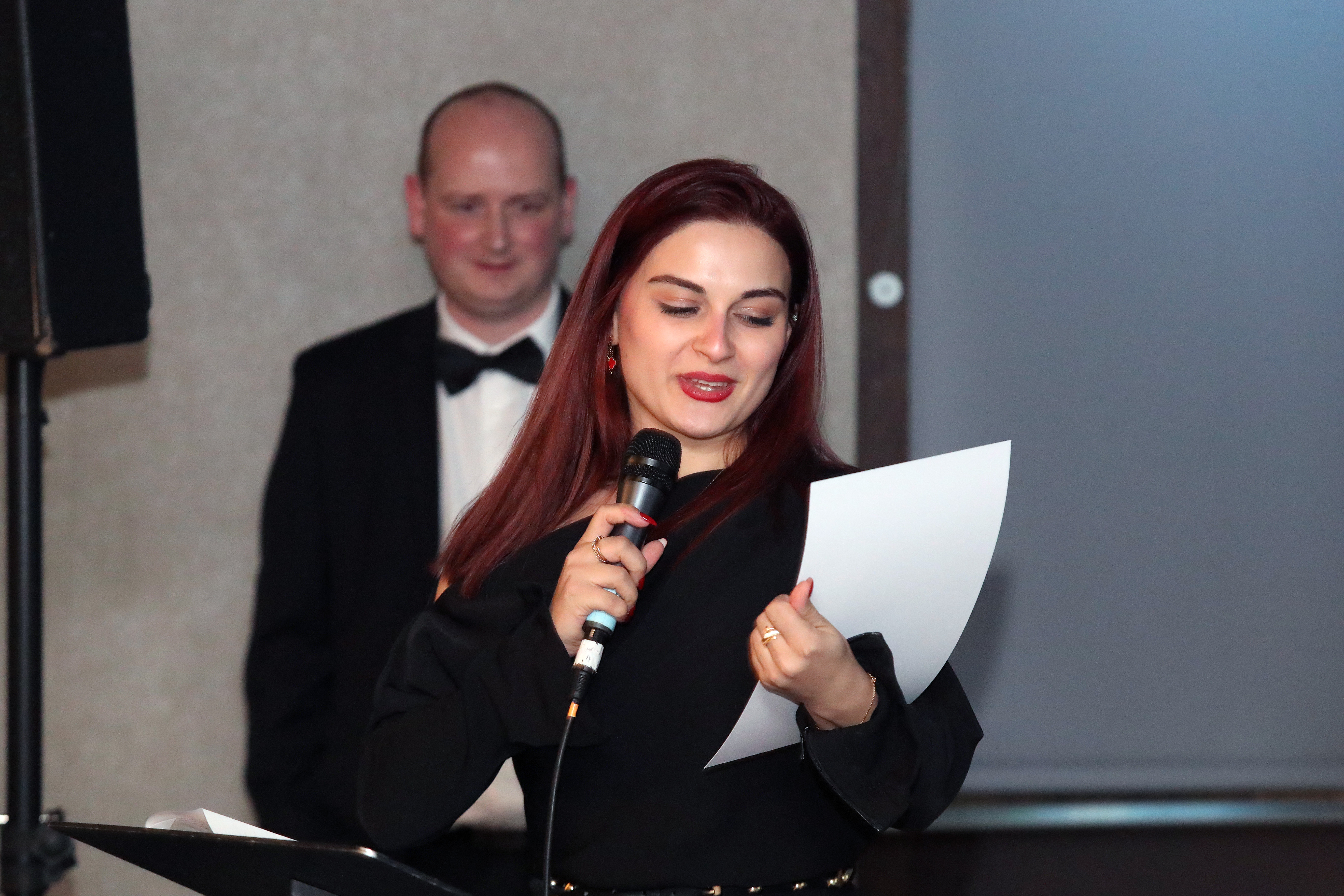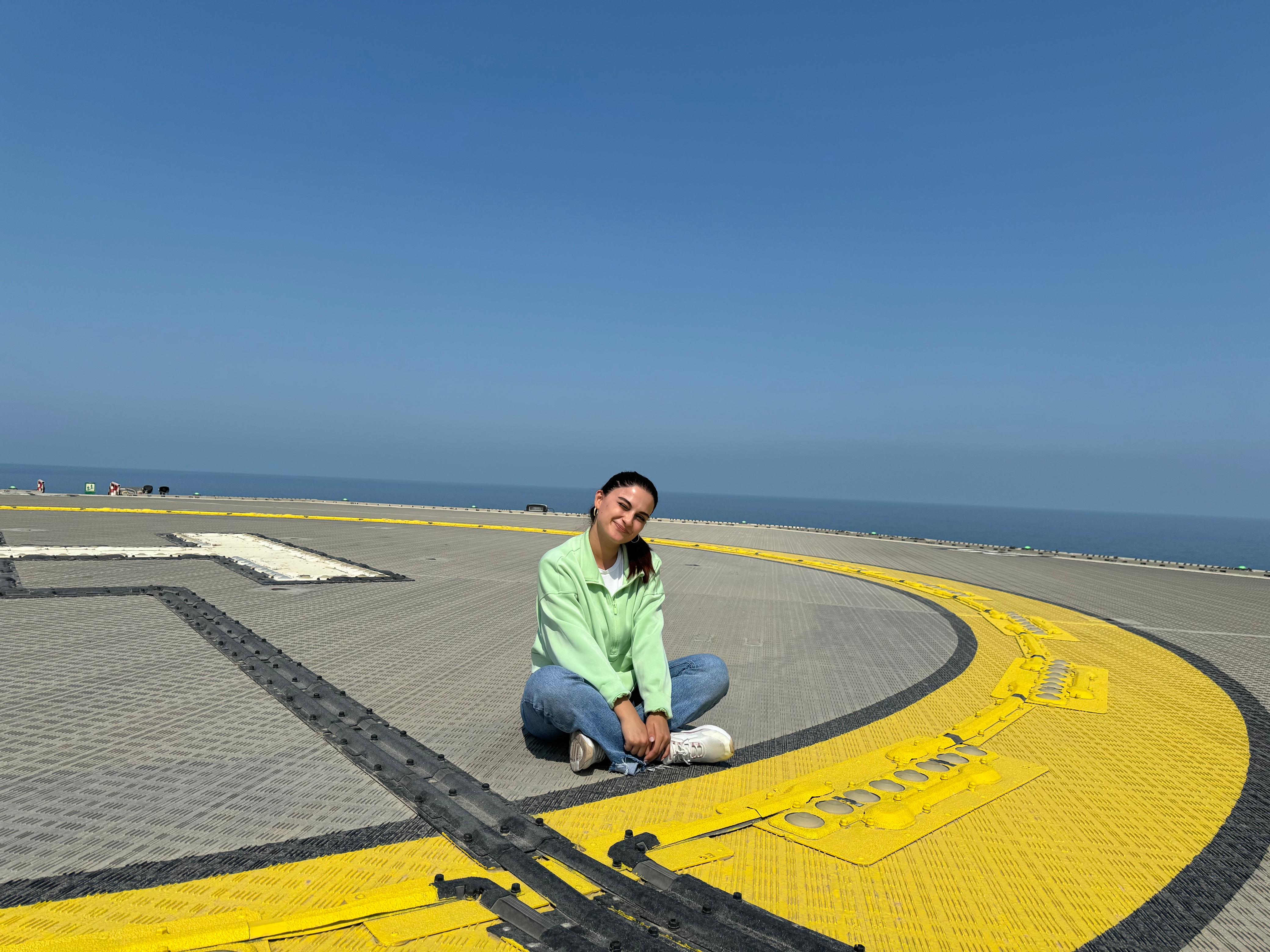In celebration of International Women in Engineering Day (INWED), we sat down with Taliya Mammadhasanzade, a rising leader in the energy sector and runner-up place in the prestigious 2024 EEMUA Early Years Industry Award. With a background in chemical and process engineering, she’s making her mark as a Site Process Engineer Graduate at BP, leading initiatives as PEC Lead, founding TamTech Academy, and championing sustainability and gender equity in engineering. Here, she shares her journey, challenges, and vision for the future.

Personal Journey & Career Path
Early Inspiration: What inspired you to pursue a career in chemical and process engineering, and how did your experiences at Baku Higher Oil School shape your journey?
Taliya: Throughout my life, I have been fascinated by how distinct components could react to create something entirely new. My high school chemistry teacher recognized my passion and encouraged me to pursue a career in chemical engineering.
This curiosity, combined with a strong interest in science and problem-solving, naturally led me to pursue a degree in engineering. I saw it as a field where I could make a tangible impact—whether through sustainable energy, cleaner production methods, or innovative technologies.
I went on to earn my bachelor’s degree in chemical engineering from Baku Higher Oil School (BHOS, 2018-2023) which is one of the Top universities in Azerbaijan. My time at Baku Higher Oil School was foundational to my journey. It provided not only a well-prepared academic environment but also hands-on industry exposure through partnerships with major national & international energy companies. In my penultimate year, I had an opportunity to participate in 10-week internship at BP Azerbaijan.
Career Milestones: Could you share some pivotal moments or projects at BP that have significantly influenced your professional growth?
Taliya: Since joining BP, I’ve had the privilege of working within a dynamic cross-functional team supporting the Azerbaijan–Georgia–Turkey (AGT) Region, including both offshore platforms and onshore assets. Being part of one of the largest and most influential energy operators in the region—managing nine offshore platforms and a major oil and gas processing terminal—has been both a challenge and an incredible opportunity for growth.
In my first year, I was actively involved in supporting operations at the Sangachal Terminal, focusing on oil separation, gas handling, and transportation units. This role required close collaboration between engineering and operations teams, where I was responsible for both day-to-day operational support and long-term improvement actions. Seeing how our collective efforts translated into measurable gains in efficiency, safety, and sustainability was deeply rewarding.
Two of the projects I led during first year of graduate program were recognized across different engineering platforms for their innovation and impact. One of them was also honored as a runner-up in the EEMUA Early Years in Industry Award, a recognition that affirmed the value of my contributions early in my career.
Currently, I’m engaged in several large-scale projects that support BP Azerbaijan’s strategic goals. These initiatives continue to shape me—not just as an engineer, but as a leader, coordinator, and trusted advisor. Each project teaches me how to navigate complexity, drive collaboration, and deliver solutions that align with both technical excellence and business priorities.
Challenges & Triumphs: As a woman in a traditionally male-dominated field, what challenges have you faced, and how have you overcome them?
Taliya: That’s a great question—and one that resonates deeply with my journey. The oil and gas industry is, without a doubt, a traditionally male-dominated field. While we can’t change that reality overnight, it’s encouraging to see forward-thinking companies like BP creating more opportunities for young women engineers and actively investing in their growth across engineering, operations, and leadership.
One of the most persistent challenges I’ve faced is being heard—especially in technical discussions early in my career. As a young female engineer, bringing fresh, theory-driven ideas to the table can sometimes be met with scepticism or even silence. It’s not uncommon for early-career voices—particularly women’s—to be overlooked in rooms dominated by more experienced professionals, many of whom come from different leadership cultures and generational mindsets.
But I’ve learned that earning trust through technical excellence, consistency, and resilience is key. I’ve made it a point to speak up, even when it’s uncomfortable, and to back my ideas with data proven answers, diligence, and determination. Over time, that persistence has paid off. I’ve seen how credibility is built not just through knowledge, but through the courage to contribute and the patience to prove your value.
As a Gen Z engineer, I believe in challenging outdated norms and advocating for inclusive environments. Overcoming these challenges isn’t easy—it takes time, grit, and a lot of self-belief. But if you’re committed to your purpose, you’ll find that every obstacle becomes a stepping stone to growth.
Because at the end of the day, engineering is about solving problems—and we, as women engineers, are more than capable of solving the ones that stand in our way.

Leadership & Mentorship
Leadership Role: In your capacity as PEC Lead, how do you foster collaboration and innovation within your team?
Taliya: I was elected as PEC Lead in January after interviews. Until today, the community leaders have been very-well experienced engineers, I believe I was confident to show my enthusiasm and passion driving the community to be in better shape was successful in process. As the Process Engineering Community (PEC) Lead, my primary responsibility is to create an open, collaborative environment where engineers across the organization can connect, share, and grow. The role is centred around facilitating knowledge exchange, driving innovation, and leveraging collective expertise to solve complex technical challenges.
One of the key ways I and my colleague Stuart foster collaboration is by maintaining an active forum where engineers can openly discuss ideas, share lessons learned, and co-develop solutions. We focus on applying internal tools and software effectively, while also promoting the use of best practices from across our Communities of Practice (CoPs), subject matter experts (SMEs), and technical advisors.
Our quarterly webinars are a cornerstone of this engagement. We begin by surveying participants to identify the topics they’re most interested in, ensuring that our sessions are relevant and impactful. We also invite senior technical leaders to share insights, which consistently draws strong participation and sparks meaningful dialogue.
To drive innovation, we introduce tools, calculators, and digital resources that simplify technical workloads and enhance productivity. A major part of my role is making SME knowledge more accessible, so engineers at all levels can benefit from expert guidance without barriers.
Ultimately, my goal is to build a culture where collaboration is second nature, and where every engineer feels empowered to contribute, innovate, and lead.
Mentorship Impact: You received your Associate Membership from IChemE with guidance from your mentor, Chinara Useynova. How has mentorship influenced your career, and what advice would you offer to aspiring engineers seeking mentorship?
Taliya: Receiving my Associate Membership from IChemE was a significant milestone in my professional journey in 2024, and I owe much of that achievement to the invaluable mentorship of Chinara Useynova. Beyond that I have used my networking skills to be mentored by technical leaders since high school. Their direction and guidance helped me navigate the technical and procedural aspects of and instilled in me a deeper understanding of what it means to be a forward-thinking chemical engineer.
Mentorship, to me, has been a catalyst for growth. It’s not just about receiving advice—it’s about being challenged, encouraged, and inspired. Chinara’s mentorship reminded me of a quote from The Prophet by Kahlil Gibran: “The teacher who is indeed wise does not bid you to enter the house of his wisdom but rather leads you to the threshold of your mind.”
For aspiring engineers seeking mentorship, my advice is this: be proactive and intentional. Seek mentors who not only have technical expertise but also embody the values and vision you aspire to. Be open to feedback, ask thoughtful questions, and most importantly, show gratitude. As Maya Angelou once said, “In order to be a mentor, and an effective one, one must care. You must care. You don’t have to know how many square miles are in Idaho, you just must know what you care about.”
Advocacy & Outreach
TamTech Academy: What motivated you to establish TamTech Academy, and how does it contribute to empowering the next generation of engineers?
Taliya: The idea to establish TamTech Academy was born from a simple yet powerful realization: access to quality engineering education and mentorship can transform lives. Throughout my own journey, I encountered many talented individuals who lacked the resources or guidance to fully realize their potential. I wanted to create a platform that could bridge that gap—where knowledge, mentorship, and opportunity converge, and also accessible to everyone.
TamTech Academy is more than just an educational initiative; it’s a community of aspiring and practicing engineers committed to continuous learning and innovation. We focus on practical skills, real-world problem-solving, and mentorship—elements often missing in traditional academic settings. I had a motto when I found the academy: “If you have some power, then your job is to empower somebody else.”
In the last 3 years, to see our students grow into confident professionals, take on ambitious projects, and even become mentors themselves is the most rewarding part of this journey. TamTech Academy is a testament to the idea that when you invest in people, you invest in progress.
Green Energy Passion: As a green energy enthusiast, what initiatives or innovations in sustainable engineering are you most excited about?
Taliya: Great question! In my opinion, as the world accelerates toward a sustainable future, three transformative trends are reshaping the landscape of green engineering. The circular economy is redefining how we design and build, emphasizing reuse, recycling, and minimal waste. Meanwhile, the electrification of transportation and industry is reducing our reliance on fossil fuels, with electric vehicles, trains, and even aircraft becoming increasingly mainstream. Supporting this shift is the rapid advancement of grid-scale energy storage, which ensures that renewable energy is available when and where it's needed, stabilizing the grid and enabling a cleaner, more resilient energy infrastructure. Together, these innovations are laying the foundation for a more sustainable and efficient world.
Recognition & Future Vision
EEMUA Nomination: Being a runner up for the EEMUA Early Years Entry Award 2024 is a significant achievement. What does this recognition mean to you, and how does it reflect your commitment to excellence in engineering?

Taliya: It was a fantastic achievement and opportunity to network with industry professionals in November 2024 for me. I would say one of the most memorable events of my 2024! Seeing your work is appreciated and valued on such platform is honourable and motivating. So, being named a runner-up for the EEMUA Early Years Entry Award 2024 is a deeply meaningful milestone in my engineering journey. It reflects not only the dedication and hard work I’ve invested in my career but also my commitment to upholding the highest standards of safety, innovation, and sustainability in engineering practice. My project recognition reinforces my belief in continuous learning and the importance of contributing to projects that make a real-world impact, especially in areas like sustainable engineering solutions in which my project mainly aimed at cost saving, less usage of energy utilization with the help of data analytics tools. It motivates me to keep pushing boundaries, collaborate with purpose, and strive for excellence in every challenge I take on since then.
INWED Significance: What does International Women in Engineering Day represent for you personally, and how do you believe such observances impact the visibility of women in engineering?
Taliyah: Using this opportunity, I would love to congratulate all women in STEM field on this special day! This day is powerful reminder of the incredible contributions women make to the engineering world—and for me personally, it represents visibility, validation, and inspiration to each other.
It’s a day that celebrates the achievements of women engineers past and present, while also shining a light on the challenges that still exist in achieving gender equity in STEM fields. Personally, it reinforces my belief in the importance of diverse perspectives in solving complex engineering problems and building a more inclusive, innovative future.
For me it expresses some values like identifying gender gaps in engineering, highlighting role models who inspire the next generation of women engineers. Every year, I use this “celebration” opportunity as a call to action. It reminds us of that representation matters, and that by supporting and uplifting women in engineering, we bring our uniqueness to industry.
Closing Thoughts
Advice to Young Women: What advice would you give to young women considering a career in engineering, especially those from underrepresented backgrounds?
Taliya: To every young woman thinking about a future in engineering: you belong here. I had listened one podcast and there was a quote - I am smiling every time I remember- “I was told I’d never be an engineer because I was a girl. I’m glad I didn’t listen.”
Your ideas, your perspective, and your voice are not only welcome—they are essential. Engineering is about the more diverse the minds at the table, the better the solutions. Coming to my advice, Firstly, Believe in your potential. You don’t need to have all the answers now—curiosity will take you far and you will find all of your answers. Secondly, seek mentors and allies. Find people who support your growth and challenge you to rise. Thirdly and importantly, stay persistent. There will be challenges. You will definitely face with inequality, rejection of your ideas, not listening to your thoughts, but every obstacle you overcome builds your confidence and your capability. And finally, be the role model you wish you had and help others find their path too.
Celebrating Women Engineers: How can we collectively celebrate and support women engineers beyond INWED, ensuring their contributions are recognized year-round?
Taliya: While International Women in Engineering Day is a powerful moment of recognition, the celebration and support of women engineers must extend far beyond a single day. To truly honour their contributions and foster lasting change, we must embed recognition, inclusion, and empowerment into the fabric of our workplaces and communities. I would propose
1) Amplify Their Voices-. By sharing their stories and successes, we not only celebrate their work but also inspire the next generation.
2) Invest in Mentorship and Sponsorship- Mentorship builds confidence, while sponsorship opens doors. Creating structured programs that connect early-career women with experienced professionals helps build networks, transfer knowledge, and accelerate growth.
3) Recognize Contributions Formally- From internal awards to industry-wide honours, formal recognition validates the impact of women engineers. Celebrating milestones—like patents, innovations, and project leadership—reinforces their value and visibility.
4) Last but not least, Build Inclusive Workplaces- True celebration comes from creating environments where women feel heard, respected, and supported. This means addressing bias, fostering allyship, and ensuring equity in opportunities and advancement.

A big thank you to Taliya for taking the time to share her journey and reflections with us. Her experiences offer not only valuable insight into the realities of working in engineering, but also serve as a powerful source of inspiration for those looking to follow a similar path. Conversations like this are at the heart of what INWED is all about, recognising the contributions of women in engineering and encouraging greater diversity across the profession. If you would like to learn more, get in touch with Taliya or EEMUA by using the links below.
🔹 Connect with Taliya on LinkedIn (https://www.linkedin.com/in/taliya-mammadhasanzada/ )
🔹 Follow EEMUA to learn more about the Early Years Entry Award and their work supporting young engineers across industry (https://www.linkedin.com/company/e-e-m-u-a/)
Interviewed by Kat Wruck, Online Systems Manager and ED&I Lead at EEMUA

